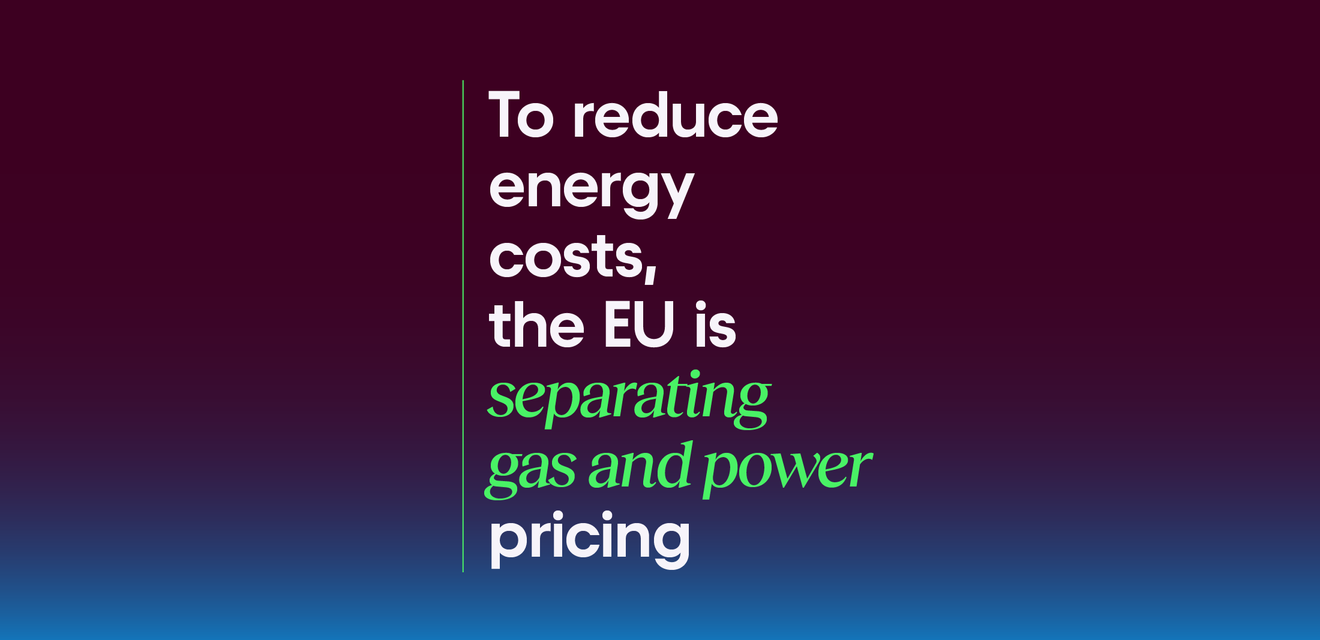A Q&A with ACT's Strategist - Renewables, Zuzana Vrbova on updates to EU energy policy

What just happened?
Germany and France reported record electricity prices. Germany’s year-ahead contracts are €995/MWh, France’s, €1,100/MWh. This is in comparison to €85 in both countries last year. The price spikes are, unsurprisingly, due to Russia cutting part of its deliveries, Europe needing to source its power elsewhere, drought on the continent, which impeded hydropower output and coal deliveries, and delays in repair delays at French nuclear plants. Ursula von der Leyen, president of the EU Commission, announced that the EU is introducing a tool to reduce energy costs in Europe by separating gas prices from power prices. In response, energy prices fell sharply on Tuesday amid signs that the commission is stepping up efforts to ease the crisis.
Why is the price of electricity linked to gas?
Currently, the EU wholesale electricity price is set by the last power plant needed to meet overall demand. These so-called last plants often set the overall electricity price and are usually gas fueled. Some countries, Spain in particular, pointed out the discrepancy of cheap renewable energy being sold at the same price as costlier fossil fuel-based power.
What policy proposals are being discussed?
Spain proposes that their national measures be applied EU-wide. Since mid-July, a price capping system has been in place in both Spain and Portugal. Gas used for power generation has been capped by Spain’s regulators at €40/MWh. After six months, the price cap will rise by five euros per MWh per month to 70 euros per MWh. Any difference between the cap and the actual market price would be reimbursed to power plants by the state. One option, proposed by Italy’s prime minister Mario Draghi, would be for EU countries to agree to a cap on the price of gas imported from Russia. Critics say that would risk Russia completely cutting off Europe's gas supply. Another option under discussion is to restrict financial speculators' participation in gas markets.
How will the EU intervene?
Von der Leyen announced that the EU is preparing an emergency plan. This will be a quick-fix measure to separate or decouple power prices from gas prices and will be discussed at a ministerial meeting on September 9th. The EU is also preparing longer-term energy market reforms aimed at ensuring that electricity is priced relative to cheaper renewable energy. Legislation will be presented earlier in 2023, an analysis of the options will be presented in October. Poland suggested suspending the ETS system. Von der Leyen refused this, saying that the ETS contributes only around 6% of the electricity price.
What does this mean for ACT’s business?
Since the EU ETS will not be restricted, these measures should not have an effect on ACT’s business. We will continue monitoring the situation and will report on proposed measures for energy market reforms.
Topics